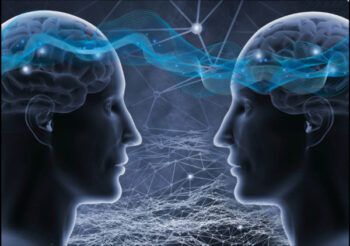Guest writer for Wake Up World
I have been writing blog posts for Psychology Today for 12 years now. I have regularly written about “psi” phenomena such as telepathy or precognition and other anomalous phenomena such as reincarnation and after-death communications. I have put forward the evidence for such phenomena, explaining why I believe they are real rather than the product of delusion, fraud, or wishful thinking.
Over the years, I’ve been heartened by the comments and emails I receive from readers. Many of them say that they’ve had their own experiences of psi or that they’ve always believed in the phenomena but never realised that there was actually evidence for them. Sometimes readers tell me that they feel relieved, discovering that they can believe in the phenomena without being labeled as “crazy.”
Physicalism as a Belief System
The reason why some people feel that to believe in psi phenomena is “crazy” is because the prevalent worldview in our culture–at least in academia and science–is “physicalism.” Physicalism is based on a number of tenets or beliefs. For example, that matter is the fundamental thing in the universe, that consciousness is a neurological phenomenon, that mental problems are brain problems that can be treated like physical conditions, that human beings are genetic machines, and so on. Many people think that the above beliefs are established facts, but this isn’t the case for me. I argue that these are simply assumptions without hard evidence.1
The belief system of physicalism may explain why many scientists and academics resist the evidence for psi. Once metaphysical paradigms or belief systems are in place, they are extremely difficult to dislodge. They have a pronounced psychological effect. They give us a sense of orientation and help us to make sense of our lives. They give us a sense of certainty and security. They offer a complete, integrated view of the world that banishes existential confusion and doubt.
They also give us a sense of control over the world. Feeling that we understand the world means that we overstand it. To feel that you completely understand nature and the world provides a satisfying sense of superiority and dominion. Not knowing means living in uncertainty and confusion, being subordinate to the mysterious forces of nature.
When a person’s belief system is threatened, it creates cognitive dissonance. The possibility that the principles of your worldview are false–and that you have much less power and control over the world than you thought–feels dangerous and disorientating.
Defending Physicalism
In order to deal with cognitive dissonance, I argue that some skeptics use the same basic methods as religious fundamentalists. I describe three of these methods here.
Fundamentalist religious groups create fear by ostracizing and punishing anyone who strays from their beliefs. Some physicalists behave similarly. Free thinkers who question the tenets of scientism are accused of being pseudo-scientific. They may find it difficult to get funding for research, publish their research in journals, present it at conferences, or get an academic post at a university. Free thinkers may be ridiculed, have their Wikipedia entries doctored, or have their videos taken down from the Internet. (This happened to Rupert Sheldrake in 2013, when his TED talk was deleted at the behest of prominent American skeptics.)
Fundamentalist groups also refuse to consider any evidence that contravenes their beliefs. In a similar way, some skeptics refuse to examine the evidence for psi. In 2018 Etzel Cardeña published a paper in American Psychologist in which he carefully and systemically reviewed the evidence for psi phenomena and concluded that there was a very good case for their existence: The evidence for psi is “comparable to that for established phenomena in psychology and other disciplines.“2 The following year, the journal published a rebuttal by Arthur Reber and James Alcock. The article didn’t engage with the evidence presented by Cardeña. As the authors wrote, “Claims made by parapsychologists cannot be true… Hence, data that suggest they can are necessarily flawed and result from weak methodology or improper data analyses.“3
In addition, fundamentalists often perform irrational cognitive contortions to dismiss evidence against their beliefs, such as when creationists try to explain the existence of fossils by saying that “God put them there to test our faith” (or by Satan to tempt us into unbelief). Similarly, if skeptics engage with the evidence for psi or conduct research, they might go to lengths to establish that positive results have not occurred.
There was a good example of this in 2005, when researchers at Notre Dame University conducted a series of eight Ganzfeld experiments, which found a highly significant overall ‘hit rate’ of 32 per cent. The researchers admitted that, as skeptics, this result made them feel ‘uncomfortable’, because it came ‘precariously close to demonstrating that humans do have psychic powers.’4 In reaction, they developed a further experiment, where they matched up individuals who had ‘hits’ during the previous eight experiments. For some strange reason, these pairs produced the highly significant negative result of a 13 per cent hit rate (significantly lower than the 25 per cent chance rate). Encouraged by this negative result, the researchers claimed that it invalidated the previous eight experiments. They concluded that they had found no evidence for the existence of telepathy.
I don’t think that skeptics do any of this consciously. It may be an unconscious response to cognitive dissonance. If you are strongly attached to a belief system, any evidence that seems to contradict it creates cognitive dissonance, generating an impulse to “bury” that evidence.
However, these strategies may show how similar the behaviour of physicalists is to religious fundamentalists. There is an irony here, though, in that most adherents to physicalism might be unaware that they’ve adopted a belief system. It is challenging to realise that we often see the world through the prism of our beliefs.
References:
1. See my book Spiritual Science for an extended discussion of these assumptions.
2. Etzel Cardeña, ‘The experimental evidence for parapsychological phenomena: A review,’ American Psychologist, 73(5) (2018), 663–677. https://doi.org/10.1037/amp0000236
3. A.S. Reber & J.E. Alcock, ‘Searching for the impossible: Parapsychology’s elusive quest. American Psychologist,’ 75(3), 391-399. https://doi.org/10.1037/amp0000486
4. E.A. Delgado-Romero & G.S. Howard, ‘Finding and Correcting Flawed Research Literatures,’ The Humanistic Psychologist, 33 (2005), 293–303.
Originally published at Psychology Today and reproduced with permission.
About the author:
Steve Taylor is a senior lecturer in Psychology at Leeds Beckett University, UK. His latest books in the US are The Calm Center and Back to Sanity: Healing the Madness of the Human Mind. He is also the author of The Fall, Waking From Sleep, and Out Of The Darkness. His books have been published in 19 languages. His research has appeared in The Journal of Transpersonal Psychology, The Journal of Consciousness Studies, The Transpersonal Psychology Review, The International Journal of Transpersonal Studies, as well as the popular media in the UK, including on BBC World TV, The Guardian, and The Independent.
Connect with Steve at StevenMTaylor.com.

If you've ever found value in our articles, we'd greatly appreciate your support by purchasing Mindful Meditation Techniques for Kids - A Practical Guide for Adults to Empower Kids with the Gift of Inner Peace and Resilience for Life.
In the spirit of mindfulness, we encourage you to choose the paperback version. Delve into its pages away from screen glare and notifications, allowing yourself to fully immerse in the transformative practices within. The physical book enriches the learning process and serves as a tangible commitment to mindfulness, easily shared among family and friends.
Over the past few years, Wake Up World has faced significant online censorship, impacting our financial ability to stay online. Instead of soliciting donations, we're exploring win-win solutions with our readers to remain financially viable. Moving into book publishing, we hope to secure ongoing funds to continue our mission. With over 8,500 articles published in the past 13 years, we are committed to keeping our content free and accessible to everyone, without resorting to a paywall.








